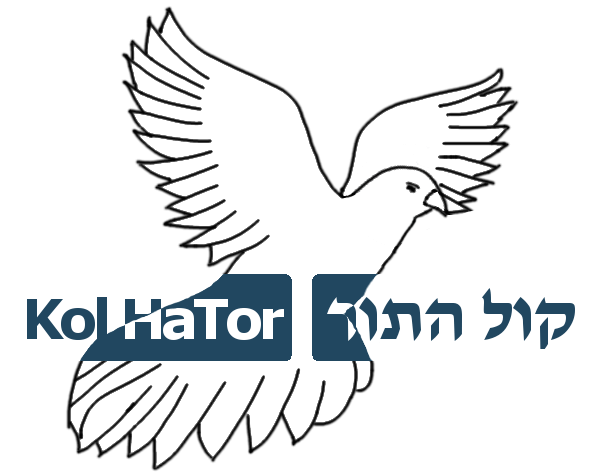|
Getting your Trinity Audio player ready...
|
WE WRITE, SEEK AND PUBLISH commentaries that present Scriptural based Messages for the Return of the Lost House of 10-Israel and their reconciliation with Judah (Judaism) – i.e. The Geulah or Redemption of Israel.
DISCLAIMER – the authors and promoters of the articles and videos that we place here are mostly not connected in any way to KOL HATOR and may well not share our views and interpretations. We do however thank them for their insight and pointers that confirm our understanding and often broaden our insight.
Haftarah Parshat Bereshit (Isaiah 42:5-21)
October 18, 2014 / 24 Tishre 5775
http://www.uscj.org.il/
The prophet opens with a proclamation that God created a purposeful world. He then enjoins upon those whom He created to act as His advocates [His Servant – Eved -עבד Isa. 42:1}: “I the Lord, in My grace, have summoned you, and I have grasped you by the hand. I created you, and appointed you a covenant people (l’brit am), a light of nations (l’or goyim), opening eyes deprived of light, rescuing prisoners from confinement, from the dungeons those who sit in darkness.” (6-7)
Who has God created to be His advocate? Who is meant to “open eyes deprived of light” and rescue “prisoners from confinement”? The answer to this question will depend on who is referred to when the prophet talks of “brit am” and “or goyim” (translated above as referring to the people as a whole), on the one hand, and on whether these two verses refer to the same subject. Targum Yonathan, the Jewish Aramaic translation of the Prophets, identifies the object of this command with the prophet who will act as an agent to redeem the Babylonian exiles: “I am the Lord your true Master who has strengthened your hand and I have prepared you and given you for a covenant to the people, as a light to the nations to open the eyes of the house of Israel, for they are closed to Torah; to bring the exiles out from among the nations, for they are like captives; and to free them from enslavement to the king, for they are chained like prisoners in darkness. Here, the prophet is the one will bring light to the exiles who are represented as the blind and as prisoners. It is this interpretation which Rashi adopts.
Rabbi Joseph Kara, a younger contemporary of Rashi, casts Cyrus, the ruler of Persia in this role, since he was the one who was geopolitically responsible for permitting the exiles to return from Babylonian to rebuild Judea.
The NJPS translation cited above seems to have adopted the interpretation of Rabbi David Kimche (12th century Provence) who saw this prophecy as aimed at Israel. According to Kimche, God will rescue Israel from exile and they will serve as a covenantal nation and a light for the nations since they will both bring peace among the nations and lead the nations of the world to observe the seven laws of Noah. Professor Shalom Paul also adopts this interpretation as the peshat or plain meaning of this prophecy. He further asserts that the people of Israel are assigned to be God’s agents on earth with certain responsibilities, one particular and one universal. They are to be a covenanted people with direct responsibility for fulfilling God’s will through His commandments while also serving as a spiritual guide to the nations by guiding them in ways of Torah. (Isaiah 40-48, Mikra L’Yisrael, pp. 146-7)
In each of these interpretations, human beings are assigned the role as God’s partners in carrying out His will in the world. This is an important message to bear in mind as we recount the story of the creation and maintenance of the world.



About This Commentary
This study piece is offered as a service of the United Synagogue Conservative Yeshiva. It is prepared by Rabbi Mordechai (Mitchell) Silverstein, senior lecturer in Talmud and Midrash at the Conservative Yeshiva. He is a graduate of the Jewish Theological Seminary of America. The United Synagogue Conservative Yeshiva in Jerusalem offers students of all backgrounds the skills for studying Jewish texts. We are a vibrant, open-minded egalitarian community of committed Jews who learn, practise and grow together. Our goal is to provide students the ability and desire to continue Jewish learning and practice throughout their lives.